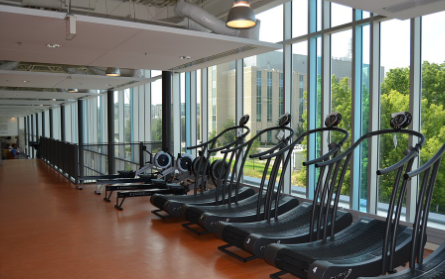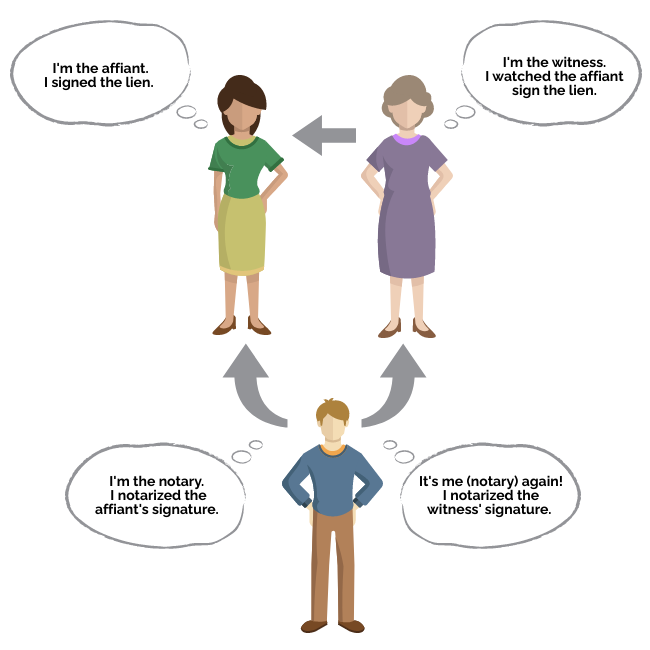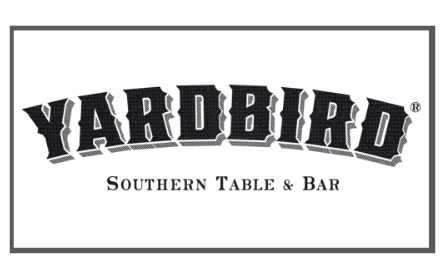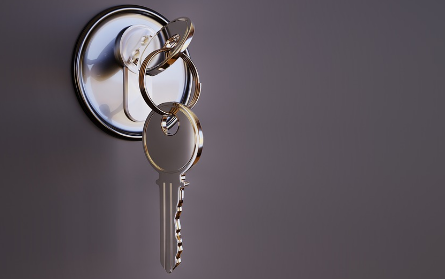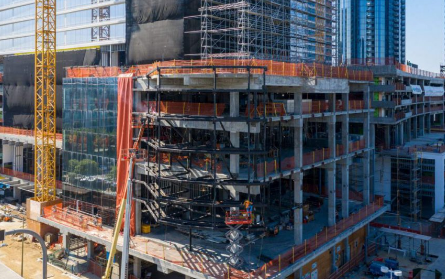
One California Lien Claimant Owed $211,717,677.00
Oceanwide Plaza in Los Angeles Buried in Mechanic’s Liens
A review of the mechanic’s lien document, via LienFinder™, confirms one general contractor is owed over $200M, and various subcontractors are owed an additional $2.5M, after furnishing to a project owned by Oceanwide Plaza LLC in Los Angeles, CA.
Lendlease (US) Construction Inc. (Lendlease) is reportedly owed $211,717,677.00 for material, labor, and services, dating back to June 2019. The project is located at 1101 South Flower Street, Los Angeles, CA 90015 (Yes, it’s the three massive towers across from the Staples Center). According to the mechanic’s lien, Lendlease has furnished “labor, materials, service, and equipment for the general construction of the project, including but not limited to civil, structural, architectural, mechanical, electrical, plumbing works and furnishings.”
Lendlease isn’t alone. Since June 2020, several claimants have tacked on to the ever-growing balance Oceanwide Plaza LLC hasn’t paid.
- Subcontractor Climatec LLC has filed its lien for $820,356.10, after it remained unpaid for the installation of HVAC controls and building management systems.
- Karcher Interior Systems, Inc. (Karcher) has filed two liens on the project under what appears to be two separate contracts, both for furnishing firestopping materials. Karcher’s total claim is $659,796.63.
- Snaideroa USA furnished & installed custom cabinetry to the project, for which it filed a lien in the amount of $871,306.51.
- Advanced Cable Solutions Inc. furnished and installed low voltage cabling in March of 2019, with an outstanding claim of $71,922.45.
Dozens of additional mechanic’s liens, totaling hundreds of millions of dollars, have been filed since construction began. LienFinder data is reporting liens dating back to 2016.
What is located at 1101 South Flower Street? Oceanwide Plaza is a large residential and retail complex, often referred to as “mixed use property.” According to DTLA, “The project – now rising on a 4.6-acre property bounded by Figueroa, Flower, 11th and 12th Streets – consists of three towers ranging up to 677 feet in height. The largest of the buildings, a 49-story edifice at 11th and Figueroa, will contain a 184-key Park Hyatt hotel with 164 branded condominiums. The two southern towers – twin 40-story structures – will have a combined total of 340 condominiums. All three buildings will sit atop a large podium, featuring a 166,000-square-foot retail galleria below and a two-acre amenity deck above.” DTLA also reported the project had an estimated completion date of 2019.
Is it complete? According to one Los Angeles news source, the project is “far from complete” and goes on to say “Cranes are still bolted to all three buildings, the multistory mall is a concrete skeleton and the block-long site is still a construction site.” Sounds like a scene from a scary movie!
This project has been marred in drama for some time, including an FBI corruption probe and issues with U.S./China trade dispute. It’s unsurprising there are payment issues.
If you are furnishing to this project, or parties associated with this project, be prepared for possible cash flow issues. Remember, these parties filing liens for millions of dollars, must make up (or find) the money elsewhere, until they get paid – you know the adage “Robbing Peter to pay Paul”. Make sure you are serving your preliminary notices and filing mechanic’s liens when necessary.


